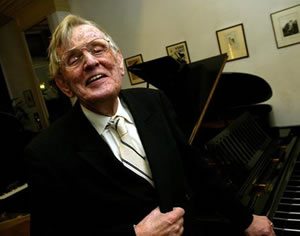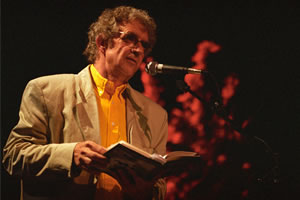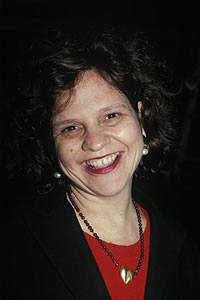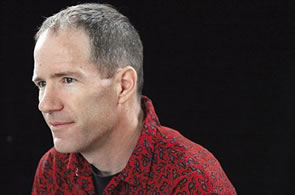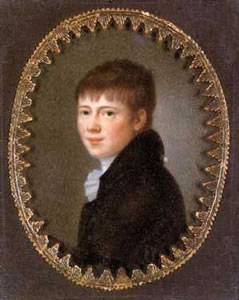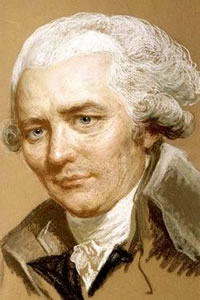Dolce far niente

Een herfstavond in Parijs door Eugen Galien-Laloue (1854 – 1941), z.j.
Herbstabend
Wind aus dem Mond,
plötzlich ergriffene Bäume
und ein tastend fallendes Blatt.
Durch die Zwischenräume
der schwachen Laternen
drängt die schwarze Landschaft der Fernen
in die unentschlossene Stadt.

Rainer Maria Rilke (4 december 1875 – 29 december 1926)
Praag, de geboorteplaats van Rainer Maria Rilke
De Nederlandse literatuurcriticus, essayist en letterkundige Kees Fens werd geboren in Amsterdam op 18 oktober 1929. Zie ook alle tags voor Kees Fens op dit blog.
Uit: De nasmaak van het onsterfelijke
“Vondels gedicht is een specimen van een soort literatuur die wij kwijt zijn, niet literair, maar literair beschouwelijk en dat is levensbeschouwelijk. Het is de literatuur die eenheidscheppend is, niet, alweer, in de literaire en daarvan afgeleide literair-kritische betekenis, maar een die eenheid ontleent aan een samenhangend wereldbeeld, in het geval van Vondel het alles insluitende en alles met elkaar in relatie brengende rooms-katholicisme, dat zich in zijn universele greep in elk deel ervan manifesteert, in het sacrament van het altaar dus ook. Misschien daar vooral, omdat daar de stofwisseling van hemel en aarde – brood wordt lichaam van Christus, wie het brood eet, neemt Christus in zich op, transformeert diens bloed in zijn eigen bloed – het meest zichtbaar is. In de ‘Koorzang’, die aan het eerste boek van Altaergeheimenissen voorafgaat, staan de regels:
Alwaar zijn uitgestorte dierbaar bloed
Rantsoen is voor zijn ledematen
De transformatie door vlees en bloed gaat het hele lichaam van alle gelovigen aan die kunnen eten en drinken. Ik citeerde de regels niet zonder opzet: het sacrament van eten en drinken staat centraal in Kellendonks roman Mystiek lichaam. De grote eenheid-scheppende conceptie van het kerklichaam, die indrukwekkende mythe, die hemel en aarde, leven en dood samenbrengt en met elkaar verzoent, maar in zijn afstoting van de maaltijd ook sommigen buitensluit, wordt zichtbaar in deze roman, vertekend en verpulverd, maar nog altijd barstend van de verwijzingen naar het grote geheel, dat de hoofdfiguren nog altijd in de greep houdt. In het verbeeldingswerk dat de roman is.
Kellendonk had nog een andere reden voor de keuze van Vondels leerdicht. Ze lijkt een toevallige, ze werd een in meer opzichten essentiële. Hij had een editie van het werk, verzorgd door de priesterdichter A. van Delft, in zijn bezit. Het bleef vijfentwintig jaar ongelezen, het boek ongeopend. In die periode las hij veel poëzie. Het boek werd een droom, maar ook het archetype van poëzie, juist doordat het ongelezen bleef, en daarbij het werk van een dichter die al even archetypisch was: monumentaal en ongelezen, een dichter die er is, omdat elk land een groot dichter moet hebben: ‘Vondel is de naam die we aan die leemte gegeven hebben.’ Altaergeheimenissen was de naam die Kellendonk aan de behoefte tot grote poëzie had gegeven.
Ik denk dat in ieders leven een ongelezen boek moet zijn; dat het literaire lezen levend blijft door het uitstel van het lezen van dat ene boek: het boek dat de leemte zou kunnen vullen die al dat lezen nodig maakt. Kellendonk sloeg het tenslotte open en hij kreeg daar ineens, vermoed ik, veel meer gelijk van een gedicht dan hij ooit verwacht had. Hij heeft, de inhoud van zijn drie colleges bewijzen het, een zeer eigen Vondel en ook diens Altaergeheimenissen voor ons ontdekt, hij heeft ook, gezien de nabeschouwing, een in zijn eigen schrijverschap passende ontdekking gedaan, in elk geval zag hij zijn eigen wereldbeeld uitgedaagd door dat van Vondels poëzie, maar daarin ook bevestigd. Vijfentwintig jaar lijkt hij de rechtvaardiging van eigen schrijverschap in huis te hebben gehad.”

Kees Fens (18 oktober 1929 – 14 juni 2008)
De Amerikaanse schrijver Nic Pizzolatto werd geboren op 18 oktober 1975 in New Orleans, Louisiana. Zie ook alle tags voor Nic Pizzolatto op dit blog.
Uit: Between Here and the Yellow Sea
“You said it,” Coach says, and I wonder if I was thinking out loud. He nods at the windshield, where rain spatters. I’m used to thinking out loud, especially in a moving truck. At this time I still work for Lone Star Environmental, in Port Arthur, and my days are spent driving back roads with a clipboard, noting phosphorus and ammonia levels in the watershed, making sure farmers aren’t spreading chicken shit over their fields. In the evening you might catch me at Petro Bowl or Chili’s, trying to buy drinks for grade school teachers and secretaries, but at work I drive alone, five to seven hours, and on those days I tend to narrate my thoughts, turning observations into stories. Rilke wrote, “Love your solitude, for solitude is difficult.” I remind myself not to think out loud.
Rain builds, and before we reach Las Cruces a torrent lets loose, hiding the road under a curtain of water. Metal writhes in my jawbone. The wipers don’t do much, and Coach leans close, squinting. He takes a pill from a brown plastic bottle.
“It’s late enough.” He swallows. We pull over onto the shoulder, rain drumming. He slouches against the window and tugs his baseball cap down. Coach doesn’t coach anymore, but he receives a generous stipend from Port Arthur High and the honorary title of athletic coordinator, which is what eight district championships and three state titles get you in East Texas. I watch him breathe, softened, rain making the windows look like creeks, and I try to connect this man sleeping so calmly with the man I used to see, the fuming, granite-faced commander on the edges of hallways, on the sidelines of a game. I try to figure how he got from there to here. I do that because at this age one of my essential habits is to look for causal links, find stories, and I spend a great deal of time combing through the past, as if answers were there. I’m at an age when I drive in circles, and I take the words of poets and famous men at face value. I’m four years out of high school, living in the house my grandmother left me, and not until sometime after Coach and I reach Los Angeles will I stop looking for answers.
My cheek rests against the window, because it’s cold and dulls my jaw’s throbbing. Coach starts to snore.
I was there the day she left. I mowed lawns back then, and on that Sunday I worked the yard next to Coach Duprene’s house. A red Chevy Blazer parked in their driveway. Four boys I knew from school were in that truck. The back end sagged with boxes and bags, a surfboard. High school was over, and they were all moving to California. Coach Duprene watched from the porch and didn’t wave as the truck rolled away”.

Nic Pizzolatto (New Orleans, 18 oktober 1975)
De Duitse dichter, schrijver en vertaler Jan Wagner werd geboren op 18 oktober 1971 in Hamburg. Zie ook alle tags voor Jan Wagner op dit blog.
Quittenpastete
wenn sie der oktober ins astwerk hängte,
ausgebeulte lampions, war es zeit: wir
pflückten quitten, wuchteten körbeweise
gelb in die küche
unters wasser. apfel und birne reiften
ihrem namen zu, einer schlichten süße –
anders als die quitte an ihrem baum im
hintersten winkel
meines alphabets, im latein des gartens,
hart und fremd in ihrem arom. wir schnitten,
viertelten, entkernten das fleisch (vier große
hände, zwei kleine),
schemenhaft im dampf des entsafters, gaben
zucker, hitze, mühe zu etwas, das sich
roh dem mund versagte. wer konnte, wollte
quitten begreifen,
ihr gelee, in bauchigen gläsern für die
dunklen tage in den regalen aufge-
reiht, in einem keller von tagen, wo sie
leuchteten, leuchten.
Champignons
wir trafen sie im wald auf einer lichtung:
zwei expeditionen durch die dämmerung
die sich stumm betrachteten. zwischen uns nervös
das telegraphensummen des stechmückenschwarms.
meine großmutter war berühmt für ihr rezept
der champignons farcis. sie schloß es in
ihr grab. alles was gut ist, sagte sie,
füllt man mit wenig mehr als mit sich selbst.
später in der küche hielten wir
die pilze ans ohr und drehten an den stielen –
wartend auf das leise knacken im innern,
suchend nach der richtigen kombination.

Jan Wagner (Hamburg, 18 oktober 1971)
De Franse schrijfster en zeilster Isabelle Autissier werd geboren op 18 oktober 1956 in Parijs. Zie ook alle tags voor Isabelle Autissier op dit blog.
Uit: Plotseling, alleen (Vertaald door Floor Borsboom)
“Ze zijn vroeg vertrokken. Het belooft een schitterende dag te worden zoals wel vaker op die onstuimige Zuidpoolzee, de hemel van een diep, vloeibaar blauw, van een transparantie die je alleen aantreft rond de vijftigste breedtegraad zuid. Geen rimpeltje op het wateroppervlak, de Jason, hun boot, lijkt te zweven over een tapijt van donker water. Bij gebrek aan wind peddelen albatrossen kalmpjes rond de romp.
Ze hebben de rubberboot hoog op het strandje getrokken en zijn langs het voormalige walvisstation gelopen. De verroeste staalplaten, verguld door de zon, hebben iets vrolijks, met hun mengeling van oker, lichtbruin en vaalrood. Het door de mensen verlaten station is wederom in bezit genomen door de dieren, dezelfde als waarop eeuwenlang jacht is gemaakt, die zijn afgemaakt, geslacht en te koken gelegd in enorme traanovens die nu op instorten staan. Rond elke hoop bakstenen, in half ingestorte krotten, te midden van een wirwar van pijpen die nergens meer heen gaan, nestelen groepen behoedzame pinguïns, families pelsrobben en zeeolifanten. Ze hebben de dieren een tijdlang gadegeslagen en zijn pas laat in de ochtend uit het dal omhooggeklommen.
‘Een dikke drie uur,’ had Hervé tegen hen gezegd, een van de weinigen die hier ooit is geweest. Zodra je op het eiland de kustvlakte achter je laat, verlaat je het groen. De wereld wordt mineraal; rotsen, kliffen, met gletsjers bedekte bergtoppen. Ze zetten er stevig de pas in, giechelend als middelbare scholieren op schoolreisje bij het zien van de kleur van een steen, het heldere water van een bergbeekje. Bij de eerste hoge piek, voordat ze de zee uit het oog verliezen, lassen ze nogmaals een pauze in. Het is van zo’n eenvoud, zo mooi, haast niet te beschrijven. De baai omgeven door donkere rotswanden, het water dat glinstert als kwikzilver in het briesje dat opsteekt, de oranje vlek van het oude station en de boot, hun goeie ouwe boot, die met toegevouwen vleugels ligt te soezen, net als de albatrossen van vanochtend. Op volle zee glanzen roerloze gevaartes, witblauw, in het licht. Niets is vrediger dan een ijsberg bij rustig weer. De hemel wordt doorkliefd door immense schrammen, schaduwloze wolken op grote hoogte die de zon met goud omrandt.”

Isabelle Autissier (Parijs, 18 oktober 1956)
De Amerikaanse dichteres en schrijfster Ntozake Shange werd geboren als Paulette Williams op 18 oktober 1948 in Trenton, New Jersey. Zie ook alle tags voor Ntozake Shange op dit blog.
you are sucha fool
you are sucha fool/ i haveta love you
you decide to give me a poem/ intent on it/ actually
you pull/ kiss me from 125th to 72nd street/ on
the east side/ no less
you are sucha fool/ you gonna give me/ the poet/
the poem
insistin on proletarian images/ we buy okra/
3 lbs for $1/ & a pair of 98 cent shoes
we kiss
we wrestle
you make sure at east 110 street/ we have cognac
no beer all day
you are sucha fool/ you fall over my day like
a wash of azure
you take my tongue outta my mouth/
make me say foolish things
you take my tongue outta my mouth/ lay it on yr skin
like the dew between my legs
on this the first day of silver balloons
& lil girl’s braids undone
friendly savage skulls on bikes/ wish me good-day
you speak spanish like a german & ask puerto rican
market men on lexington if they are foreigners
oh you are sucha fool/ i cant help but love you
maybe it was something in the air
our memories
our first walk
our first…
yes/ alla that
where you poured wine down my throat in rooms
poets i dreamed abt seduced sound & made history/
you make me feel like a cheetah
a gazelle/ something fast & beautiful
you make me remember my animal sounds/
so while i am an antelope
ocelot & serpent speaking in tongues
my body loosens for/ you
you decide to give me the poem
you wet yr fingers/ lay it to my lips
that i might write some more abt you/
how you come into me
the way the blues jumps outta b.b.king/ how
david murray assaults a moon & takes her home/
like dyanne harvey invades the wind
oh you/ you are sucha fool/
you want me to write some more abt you
how you come into me like a rollercoaster in a
dip that swings
leaving me shattered/ glistening/ rich/ screeching
& fully clothed
you set me up to fall into yr dreams
like the sub-saharan animal i am/ in all this heat
wanting to be still
to be still with you
in the shadows
all those buildings
all those people/ celebrating/ sunlight & love/ you
you are sucha fool/ you spend all day piling up images
locations/ morsels of daydreams/ to give me a poem
just smile/ i’ll get it

Ntozake Shange (Trenton, 18 oktober 1948)
De Afrikaans – Amerikaanse schrijfster Terry McMillan werd geboren op 18 oktober 1951 in Port Huron, Michigan. Zie ook alle tags voor TerryMcMillan op dit blog.
Uit: I Almost Forgot About
“I hate to admit it, but if I had the energy, I’d kill to have sex with the first one who walked into my bedroom tonight. I’d let him do anything he wanted to do to me. It’s been centuries since I’ve had sex with a real man, and I’m not even sure I’d remember what to do first should I ever get so lucky again. In fact, I think I’d be too uncomfortable, not to mention scared of getting all touchy-feely, and don’t even get me started on him seeing me naked. Hell, this is why I sleep with the remote.
When I hear the doorbell, I glance over at the broken blue clouds inside the clock on the night table. I’ve been waiting 40 minutes for this pizza, which means they’re going to owe me a free one! I roll off the bed on my side, even though the other side has been empty for years. I walk over to the door and yell, “Be right there!” Then I grab my wallet out of my purse and beeline it to the front door, because I’m starving. That is so not true. I’m just a little hungry. I’m trying to stop lying to myself about little things. I’m still working on the big ones.
I open the door, and standing there sweating is a young Black kid who can’t be more than 18. His head looks like a small globe of shiny black twists that I know are baby dreadlocks. His cheeks are full of brand-new zits. His name tag says “Free.”
“I’m so sorry for the delay, ma’am. There was a accident at the bottom of the hill, and I couldn’t get up here, so this one’s on the house.”
He looks so sad, and I’m wondering if the price of this pizza is going to be deducted from his little paycheck, but I dare not ask.
“I don’t mind paying for it,” I say. “It wasn’t your fault there was an accident.” I take the pizza from him and set it on the metal stairwell.
“That’s real thoughtful of you, but I’m just glad this is my last delivery for the night,” he says, leaning to one side as if he’s pretending not to look behind me, but of course he is. “This a real nice crib you got here. I ain’t never seen no yellow floors before. It’s downright wicked.”

Terry McMillan (Port Huron, 18 oktober 1951)
De Duitse dichter en schrijver Heinrich von Kleist werd geboren op 18 oktober 1777 in Frankfurt an der Oder. Zie ook alle tags voor Heinrich von Kleist op dit blog.
Uit: Michael Kohlhaas
“Der Junker, den der mächtige Schweißhengst sehr reizte, befragte ihn auch um den Preis; der Verwalter lag ihm an, ein Paar Rappen zu kaufen, die er wegen Pferdemangels in der Wirtschaft gebrauchen zu können glaubte; doch als der Rosskamm sich erklärt hatte, fanden die Ritter ihn zu teuer, und der Junker sagte, dass er nach der Tafelrunde reiten und sich den König Arthur aufsuchen müsse, wenn er die Pferde so anschlage. Kohlhaas, der den Schlossvogt und den Verwalter, indem sie sprechende Blicke auf die Rappen warfen, miteinander flüstern sah, ließ es aus einer dunkeln Vorahndung an nichts fehlen, die Pferde an sie loszuwerden. Er sagte zum Junker: »Herr, die Rappen habe ich vor sechs Monaten für 25 Goldgülden gekauft; gebt mir 30, so sollt Ihr sie haben.« Zwei Ritter, die neben dem Junker standen, äußerten nicht undeutlich, dass die Pferde wohl so viel wert wären; doch der Junker meinte, dass er für den Schweißfuchs wohl, aber nicht eben für die Rappen Geld ausgeben möchte und machte Anstalten aufzubrechen; worauf Kohlhaas sagte, er würde vielleicht das nächste Mal, wenn er wieder mit seinen Gälen durchzöge, einen Handel mit ihm machen sich dem Junker empfahl und die Zügel seines Pferdes ergriff, um abzureisen.
In diesem Augenblick trat der Schlossvogt aus dem Haufen vor und sagte, er höre, dass er ohne einen Passschein nicht reisen dürfe. Kohlhaas wandte sich und fragte den Junker, ob es denn mit diesem Umstand, der sein ganzes Gewerbe zerstöre, in der Tat seine Richtigkeit habe? Der Junker antwortete mit einem verlegnen Gesicht, indem er abging: »Ja, Kohlhaas, den Pass musst du lösen. Sprich mit dem Schlossvogt und zieh deiner Wege.« Kohlhaas versicherte ihn, dass es gar nicht seine Absicht sei, die Verordnungen, die wegen Ausführung der Pferde bestehen möchten, zu umgehen, versprach bei seinem Durchzug durch Dresden den Pass in der Geheimschreiberei zu lösen und bat, ihn nur diesmal, da er von dieser Forderung durchaus nichts gewusst, ziehen zu lassen. »Nun!«, sprach der Junker, da eben das Wetter wieder zu stürmen anfing und seine dürren Glieder durchsauste, »lasst den Schlucker laufen. Kommt!«, sagte er zu den Rittern, kehrte sich um und wollte nach dem Schlosse gehen. Der Schlossvogt sagte, zum Junker gewandt, dass er wenigstens ein Pfand zur Sicherheit, dass er den Schein lösen würde, zurücklassen müsse. Der Junker blieb wieder unter dem Schlosstor stehen. Kohlhaas fragte, welchen Wert er denn an Geld oder an Sachen zum Pfande wegen der Rappen zurücklassen solle? Der Verwalter meinte, in den Bart murmelnd, er könne ja die Rappen selbst zurücklassen.”

Heinrich von Kleist (18 oktober 1777 – 21 november 1811)
Monument in Frankfurt an der Oder
Zie voor nog meer schrijvers van de 18e oktober ook mijn blog van 18 oktober 2017 en eveneens mijn blog van 18 oktober 2015 deel 2.






